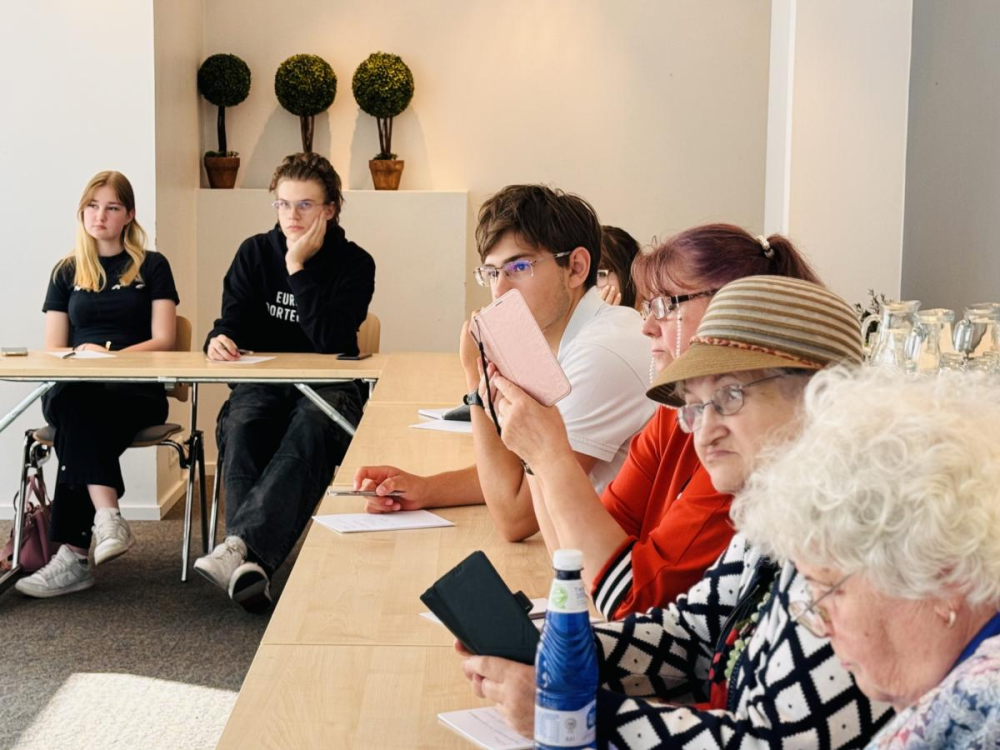In the dynamic landscape of modern media, misinformation poses significant threats to societal harmony and critical thinking. Recognizing this challenge, the Community Development Society (Kogukonna Arengu Ühing), in partnership with several partner and expert organizations, launched an ambitious Local Action: Empowering Resilience Against Disinformation. This initiative focused on media literacy and digital activism to strengthen resilience among CSOs and diverse groups in Estonia, including youth, teachers, and civil society members.
Target Group and Community
The project primarily targeted organizational management, members, volunteers, CSO representatives, active youth, educators, teachers, and field experts aged 16 to 60+, encompassing various ethnicities and socio-economic backgrounds. Particular attention was given to Russian-speaking audiences and vulnerable groups. Over six months, the initiative directly engaged 186 participants through intensive trainings, workshops/working groups, public debates and digital campaigns, while indirectly reaching 10,000 individuals via media and social platforms.
Society in Action
The project employed a multi-faceted approach:
1. Workshops and Trainings: Three full-day workshops on media literacy, disinformation, and digital tools, organization communication capacity building, equipped 109 participants with critical skills. High-caliber experts from Tallinn University, Raadio 4, ERR, Media and Marketing agency/training centers provided practical training on critical thinking and public (citizen) journalism, enhancing CSOs' digital security and digital activism, and developing Civil Society Organizations' response to disinformation and propaganda.
 Photo: Training for different age groups (Kogukonna Arengu Ühing).
Photo: Training for different age groups (Kogukonna Arengu Ühing).2. Public debate seminar: A one-day practical public discussion, “Critical thinking and disinformation in community life and social media” in Narva-Jõesuu Meresuu Spa Hotel brought together 52 participants and leading experts. The program featured debates, working groups and collaborative exercises designed to foster practical experience with a co-creation session, and set up strategies to build a resilient society, combat fake news/propaganda, and prepare civil society to respond to media warfare.
3. Digital Activism Campaigns: Engaging 25 selected participants, this campaign encouraged content creation to counter misinformation. Despite challenges, participants produced articles, podcasts, and short videos addressing propaganda and cognitive warfare.
Relevance and Impact
The initiative addressed critical gaps in media literacy, particularly among Russian-speaking Estonian communities, which are often susceptible to external propaganda. Participants reported improved critical thinking, diversified media consumption habits, and an increased ability to counter disinformation.
Challenges Faced:
Digital Activism Barriers: Many participants hesitated to publish their content due to fears of community backlash and online harassment.
Resource Constraints: Limited staff and funding posed challenges in managing extensive communication and translation needs.
Target Group Dynamics: Bridging intergenerational and cultural gaps required tailored and holistic approaches, which sometimes strained resources.
Our Achievements!
Enhanced media literacy for over 180 direct participants, fostering critical analysis and digital resilience.
Strengthened collaboration among stakeholders, including educators, CSOs, and media outlets.
Significant behavioral changes among elders, youth and CSOs members, including a 40% increase in accessing diverse media channels in multiple languages.
Implementation of strategic action plan and creation of a sustainable platform for future media literacy initiatives, with plans for joining a coalition and conducting a media and communication summit or conference in 2025.
Here's to technology!
To make the initiative successful, we turned to several tools. The program leveraged a variety of digital resources, including:
Google Fact-Checking Tools: Empowered participants to verify information.
EUVSDISINFO.EU: Enhanced understanding of misinformation.
Menti.com: Facilitated interactive feedback and engagement during sessions.
AI Tools: Supported content creation and digital activism.
Critical Thinking is the Key
The Local Action by the Community Development Society has laid a strong foundation for capacity building in media and digital literacy and supported combating misinformation in Estonia. By equipping CSOs, individuals with critical skills and fostering a culture of informed media consumption, the initiative has empowered communities to resist propaganda and build resilience. However, the journey continues, with the hope of implementing a settled action plan strategy and the ability to expand and refine these efforts in the coming years.
Join the movement against disinformation! Explore our self-paced courses and upcoming events to become a media-savvy digital activist. Visit kogukond.eu for more information.
Visit:
Implementers' page: Community Development Society
Local Action Page: Empowering Resilience Against Disinformation
Author: Community Development Society
Background illustration: Community Development Society